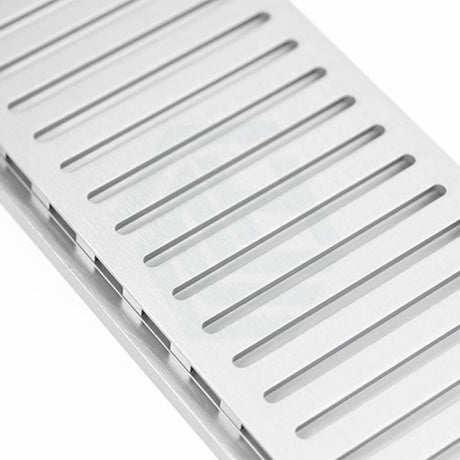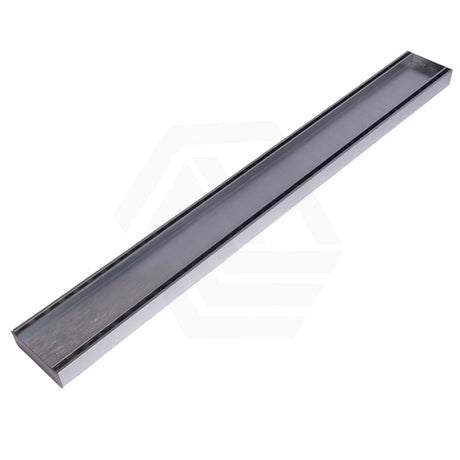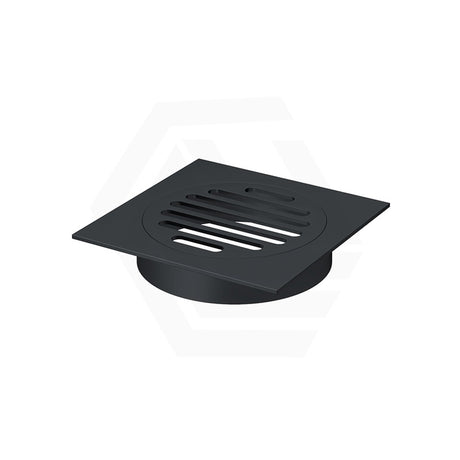31 October, 2025
Why Your Shower Drain Smells and How to Fix It for Good
Learn what causes shower drain smells and discover easy DIY fixes, prevention tips, and when to call a plumber for lasting freshness.

Have you ever walked into your bathroom and noticed a bad smell coming from the shower drain? You’re definitely not alone. It’s a common problem that can make your bathroom feel unpleasant and, if ignored, could even affect your health.
This guide breaks down what causes shower drain smells, how to get rid of them step by step, when it’s time to call a plumber, and how to stop the smell from coming back. With a few simple fixes, your bathroom can stay clean and fresh every day.

What Causes Shower Drain Smells?
Shower drain smells usually come from everyday buildup or small plumbing problems. A bit of grime or a dry pipe can quickly cause a bad odour. Here’s what might be going on.
Biofilm buildup
Biofilm is a sticky layer of bacteria that forms inside your drain. It feeds on soap, shampoo, body oils, and hair that collect in the pipes. Over time, it starts to rot and release bad smells.
In homes where showers are not used often or water is limited, this buildup can grow faster because the drain is not rinsed enough.
Dry P-trap
The P-trap is the curved pipe under your shower that holds a small amount of water to block sewer gases. If the shower is not used for a while, such as in a guest bathroom, the water can dry out.
When this happens, gases that smell like rotten eggs escape through the drain and fill the bathroom.
Mould and mildew growth
Mould and mildew grow easily in damp, dark places like under drain covers or inside pipes. If the drain cover is loose or not sealed properly, these fungi can spread and create a musty smell. Breathing in mould spores for a long time can also cause allergies or headaches.
Partial clogs
Hair, soap, and small pieces of dirt can build up inside the drain and slow the water flow. Even if the drain is not fully blocked, these small clogs can trap moisture and bacteria that cause bad smells.
Sometimes, you may notice a shower drain smells but not clogged, which often means the buildup is just starting near the surface. Cleaning it early can stop the smell from getting worse.
Leaky Pipes or Sewer Issues
Corrosion, loose fittings, or even septic tank problems in rural Australian properties might allow gases to seep out.
If your home has older plumbing, such as galvanised steel pipes common in some pre-1980s builds, rust and leaks could be at play.
Blocked Vent Pipe
In some cases, the smell might originate from external factors like a blocked vent pipe on your roof, which disrupts the plumbing system's air pressure and allows gases to back up.
How Do You Eliminate Shower Drain Smells?
Getting rid of shower drain smells is often easier than it seems. In most cases, you can fix the problem with simple home remedies using things you already have. Here are a few easy methods to try, starting with the gentlest ones.
1. Baking soda and vinegar method
This simple, natural mix helps clean away grime, dissolve mild clogs, and neutralise smells. It’s gentle on pipes and safe for regular cleaning.
- Boil about 2 litres of water (cool to around 60–70°C for PVC pipes).
- Pour it down the drain to loosen debris.
- Add 1 cup of baking soda, then 1 cup of white vinegar.
- Let the fizzing reaction work for 10–15 minutes.
- Rinse with another 2 litres of hot water.
2. Remove mould-related smells
If your shower has a musty or damp smell, mould is probably growing under the drain cover. Cleaning and disinfecting the area will clear the odour and stop it from coming back. Follow these simple steps to get rid of it effectively.
- Remove the drain cover with a screwdriver.
- Scrub the area using a paste of baking soda and water.
- Rinse with hot water.
- Pour a mix of 1 part bleach and 1 part water into the drain.
- Wait 5 minutes and rinse again.
3. Address a dry P-trap
A dry P-trap often lets sewer gas escape, which smells like rotten eggs. Refilling it is quick and helps seal out the odour.
- Shine a torch into the drain to see if water is present.
- If dry, pour 1–2 litres of water into the drain.
4. Handle partial clogs
When shower drain smells but not clogged, you might have a small blockage starting to form. Clearing it early helps water flow freely and removes trapped dirt or bacteria.
- Use a plunger or drain snake.
- Fill the shower base with a few centimetres of water.
- Plunge 10–15 times to loosen buildup.
- Flush with hot water.
5. Try enzyme-based cleaners
Enzyme cleaners use natural bacteria to break down residue safely. They’re great for regular upkeep and help prevent future odours.
- Pour 100–200 ml into the drain as directed.
- Let it sit overnight.
- Flush with warm water the next morning.
6. Fix persistent smells
For stubborn rotten-egg odours, combine cleaning methods: clean the drain, refill the P-trap, and use a disinfectant. If that doesn’t help, the issue may be deeper within your plumbing system. In that case, it’s best to call a professional plumber to inspect and repair it safely.

When Should You Call a Professional Plumber?
DIY cleaning can solve most shower drain smells, but some problems need expert help. Calling a licensed plumber can save time and prevent bigger issues later. You should reach out to a professional if:
- The smell stays even after several cleanings. This could mean a cracked P-trap, a blocked sewer line, or a vent pipe problem.
- Water drains slowly even after cleaning, which might point to a deep clog that home tools can’t reach.
- You notice a strong sewage smell throughout the home, suggesting septic tank or municipal sewer issues..
- There’s water damage, high water bills, or visible mould spreading around the drain.
Many plumbers now use small cameras to inspect pipes without digging. It usually costs around AUD 200–400, depending on where you live. Getting help early can stop small issues from turning into costly repairs.
How Do You Prevent a Smelly Shower Drain?
Keeping your shower drain fresh is much easier than fixing a bad smell later. A few simple habits and regular care can stop odours from forming in the first place.
- Upgrade to high-quality drains. Old or low-quality drains can trap dirt, soap, and standing water, which leads to bad smells over time. Upgrading to a modern, well-sealed option improves water flow and prevents buildup. Check out MyHomeware bathroom wastes & drains. They’re easy to clean, stylish, and made to last, keeping your bathroom fresher for longer.
- Flush your drains every month. Pour 2–3 litres of hot water mixed with baking soda and vinegar to keep pipes clear. For showers you don’t use often, run water for a minute or two every couple of weeks to keep the P-trap filled.
- Keep the bathroom ventilated. Turn on an exhaust fan during and after showers for 20–30 minutes to reduce moisture. In humid areas like Queensland, a small dehumidifier also helps.
- Use liquid body wash instead of bar soap. Bar soap creates more scum that sticks to drains. Switching to liquid wash helps reduce buildup.
- Don’t pour oils or grease down the drain. They harden inside the pipes and attract bacteria that cause bad smells.
- Get a yearly plumbing check. For older homes, a professional inspection once a year can catch small problems before they turn into major repairs.
Conclusion
A fresh-smelling bathroom comes from a healthy plumbing system. Fixing the shower drain smells early keeps the room clean and comfortable to use.
Simple habits like cleaning regularly, letting air flow after showers, and getting a quick check from a plumber once in a while can stop bad smells before they start. Taking small steps now saves you from bigger repairs later.
For easy-to-clean, reliable bathroom fittings that keep your space fresh, take a look at MyHomeware’s range.















